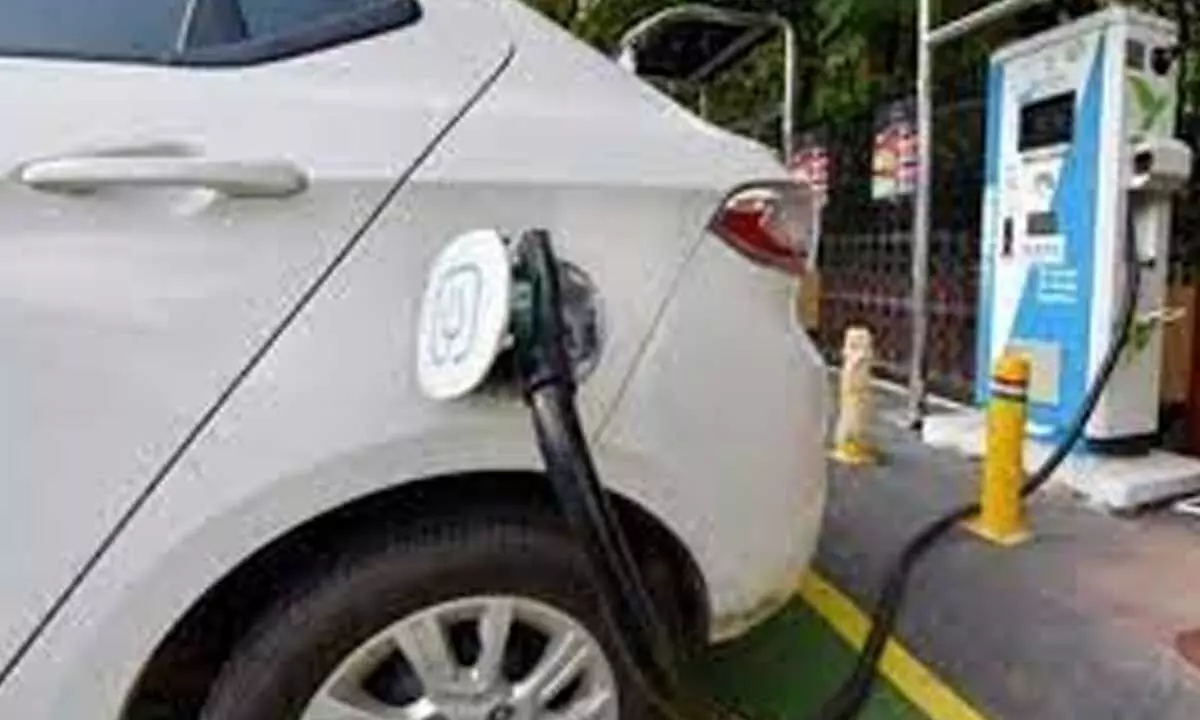Delhi, Haryana, UP have most comprehensive EV policies

Delhi, Haryana, UP have most comprehensive EV policies
Delhi, Maharashtra, Haryana, and Uttar Pradesh have the most comprehensive electric vehicle policies with the widest range of parameters, including budget allocations, charging infrastructure and job creation, according to a new study.
New Delhi: Delhi, Maharashtra, Haryana, and Uttar Pradesh have the most comprehensive electric vehicle policies with the widest range of parameters, including budget allocations, charging infrastructure and job creation, according to a new study.
The study by Climate Trends, 'Analysis Of State Electric Vehicle Policies And Their Impact', assesses the comprehensiveness of EV policies of 26 states and Union territories based on 21 parameters. Arunachal Pradesh, Manipur, Himachal Pradesh, Ladakh, Kerala, and Uttarakhand offer between three to seven of the 21 defined parameters in their policies, making them the least comprehensive, it said. Of the 26 states and UTs which have released EV policies over the last five years, 16 of them have been released between 2020 and 2022, it said. None of the eight states -- Andhra Pradesh, Bihar, Karnataka, Kerala, Madhya Pradesh, Tamil Nadu, Telangana and Delhi -- that released their policies before October 2020 are on track to meet their targets of EV penetration, charging infrastructure or investments, the report said.
It said EV policies of the nine states and UTs - Delhi, Odisha, Bihar, Chandigarh, Andaman & Nicobar, Maharashtra, Haryana, Rajasthan and Meghalaya have the strongest demand side incentives. Tamil Nadu, Haryana and Andhra Pradesh have the strongest supply side incentives, with special support to boost EV manufacturing, apart from incentives offered in the state's industrial policy, it said. Only nine states -- Chandigarh, West Bengal, Andhra Pradesh, Tamil Nadu, Odisha, Delhi, Maharashtra, Meghalaya, Ladakh -- have mandated the creation of charging infrastructure in new residential buildings, offices, parking lots, malls, etc, the report said.
Only eight states have specific targets for electrification of fleets such as last mile delivery vehicles, aggregator cabs, government vehicles: Maharashtra, Delhi, Haryana, Karnataka, Assam, Madhya Pradesh, Manipur, Andaman & Nicobar.
Delhi's EV penetration stands at 7.2 per cent as of November 2022 against its target of 25 per cent by 2024. Tamil Nadu has no defined target but EV penetration is a mere 2.02 per cent of registered vehicles, the report said. Electrification of public transport is lagging across all eight states. Tamil Nadu aims for five per cent of buses to be electric, but has no e-buses on ground yet. Kerala aims for 6,000 buses by 2025 but has only 56 on ground, it said.
Delhi, with the highest charging stations and points, has only made it to 9.6 per cent of its 2024 target of having 30,000 charging stations. In all other seven states, publicly available data shows public and semi public charging stations to be between 100 to 500 only. "With e-mobility expansion placed as one of the key pillars in achieving faster decarbonisation across the country, the success of state EV policies is both significant and necessary for India's carbon reduction goals.








